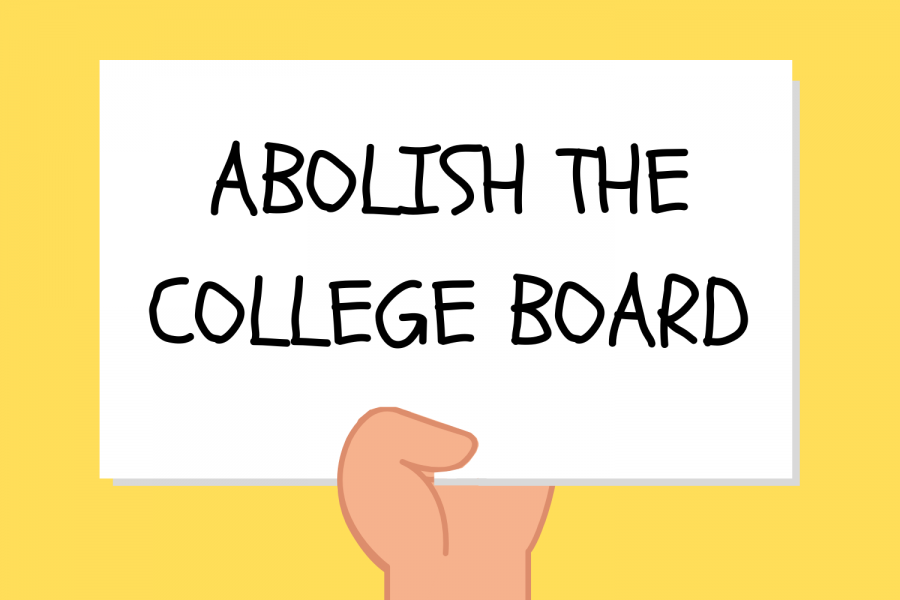It’s Time To Abolish The College Board
The private organization holds students by the necks, suffocating their high school experience and perspective towards the future
AP culture has created a generation of students that strive to meet the standards of a private organization.
April 12, 2021
Looking back on the beginning of the March 2020 quarantine, my memories are filled with whipped coffee, Tiger King, TikTok, and more painfully, virtual AP exams.
Each day of the initial lockdown, I woke up worried I wasn’t doing enough to prepare; with a new, virtual format, it was unclear on how the test would be graded since it was reduced down to one or two parts of the original test. For example, my AP Chemistry exam, normally consisting of a multiple-choice section and a free-response section, had been reduced down to two “long FRQs.” Even though these two questions were made up of about 10-12 parts, students did not have to complete the whole test to receive a passing score of a three, four, or five. But nevertheless, this reassurance didn’t do much to deliver a clear response as to how students can succeed.
This experience was not unique to me, as it was shared by countless students across the country, and even across the globe. The two letters “AP” could strike fear into any student wanting to earn college credit through these rigorous courses. The classes, owned and regulated by the College Board, are meaningful to many high schoolers, and the stress and preparation associated with them mirror those of the standardized MAP tests we had to take in elementary and middle school. The state of Missouri required these tests to gauge whether students were meeting the state’s standards for education. However, the College Board, while expansive in its impact, is significantly dissimilar to the MAP tests—it is a private organization.
While the College Board is separate from the federal and state governments, it still has the power to determine our success in postsecondary education. If students pass their exams, they can be eligible to transfer that credit in college, replacing a general education course. The company owns a monopoly that profits off of teenagers, leeching off of their desires to be seen as a high achieving student, and earn college credit. There is no need for one single group to have this power—especially during a year where the standards of education across the country are so inconsistent.
While the Wentzville School District has been in Level 1: in-person learning for a majority of the school year, other districts have been in hybrid or virtual learning, which are generally more difficult formats. The distribution of one test for each class in all schools represents a great inequity in the measure of our learning. As an LHS student, I feel confident in my abilities to perform well on the upcoming exams, but hybrid and virtual students in other parts of the nation may not be able to say the same. But even though I have this confidence in my skills needed to complete the exam, I still fear about retaining the content.
In addition to the difficulty of learning the curriculum during WSD’s hybrid and virtual periods, the district’s decision to administer the full in-person exams has placed us in the first administration of testing. This has decreased the amount of time for students to not only review the content, but learn it in the first place. The difference in these administrations is only a matter of weeks; however, as we have been told repeatedly in our academic careers, spreading out your studying over the course of a few weeks will be significantly beneficial.
I must recognize that this article comes from a state of privilege in regards to education; I’m extremely lucky to have face-to-face instruction, amazing teachers, and access to any online resource I could ever need. The College Board has evidently tailored their classes to schools like Liberty, ignoring the diverse variety of schools in the United States. Each student, regardless of background, deserves the ability to engage in challenging courses while also receiving college credit for their work.
With the abolition of the College Board, the American education system will have eliminated one factor in the overworked, tiresome culture they have bred.













